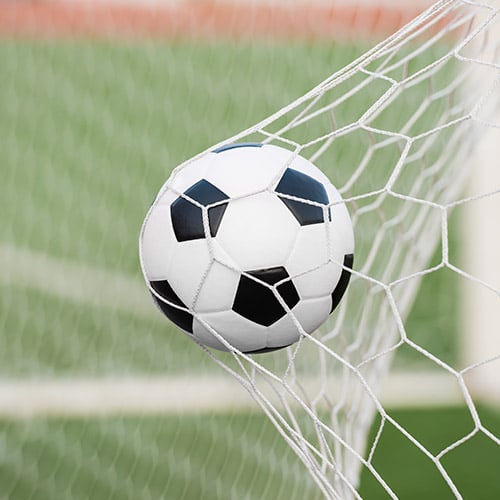Did you know that, on average, referees and match officials make over 130 explicit decisions per match and 3-4 decisions per minute? This shows they have a lot of control over the game and as sports continue to grow substantially, so does the scrutiny of referees’ performances.
The sport psychology team here at InnerDrive has spent years looking at the research surrounding athlete performance and effective coaching. But what about referees? Let’s take a look at what the research says on the psychology of one of the most important roles in sports, both in terms of the obstacles that referees face and what they might focus on to perform their best.
Obstacles and barriers for referees
If you’ve ever watched a football match, you know that making decisions is not always easy. Research has identified many obstacles that referees need to overcome to make the right decisions, which include…
Performance environment
The environment a match takes place in can have a substantial impact on referee performance. The presence of the crowd has been found to have a strong influence on decision making.
Crowd pressure may cause referees to make decisions more in favour of the home team, otherwise known as “the Crowd Effect”. This bias is enhanced when fans are closer to the pitch and the pitch does not have an athletics track. For example, stadiums such as The Emirates might produce a larger Crowd Effect than West Ham’s pitch.
Performance environment and arousal
However, in some referees’ case, crowds do not inhibit their performance but facilitate it. When referees officiated stadiums with no crowds during the COVID-19 pandemic, some stated it was harder to referee without spectators. They felt it more difficult to concentrate because they enjoy the pressure that the crowd creates.
So, why is that? Our Reticular Activating System (RAS) may be able to explain this. This is a system in the brain that controls our arousal levels. Stimulating your RAS can increase your performance – however everyone is different. Some people, mainly introverts, already have a highly stimulated RAS which causes them to try to avoid high arousal situations to not get over-aroused and weaken their performance.
On the other hand, more extroverted people may need high arousal situations to stimulate their RAS and increase performance. Therefore, a crowd could increase arousal and improve the performance of a referee who falls into that category.
Individual constraints
As human beings, we all have constraints that may set back our performance. Factors such as emotional control and resilience have been identified as key traits a referee needs to officiate well. The goal of every referee needs is to control their emotions, not let their emotions control them. Negative emotions such as anger not only decrease decision making ability but can also damage referee credibility, making this a very important skill for every match official to develop.
Resilience is a very important attribute for referees. Match officials aren’t perfect and sometimes make the wrong calls. However, a strong character and resilience helps overcome that. The ability to continue even when you’ve made a mistake is a quality that can enhance referee performance – and its absence can decrease performance.
The media and social media
With the prevalence of social media, scrutiny is hard to avoid, and it can influence referee performance. All it takes is for commentators or media pages to say one negative thing that will have match officials rethinking their decision to please the critics. This is an obstacle a lot of referees will face. However, if they overcome this barrier, their performance quality will really improve.
What can referees do to improve performance?
Now we know what can hinder referee performance, its important to know how to improve it. Research has shown there are two key factors that referees are recommended to focus on during their training programmes…
- Proximal constraints – The obstacles that have a direct effect on referee performance
- Distal constraints – The obstacles that have an indirect effect on athlete performance
Proximal constraints
Crowd noises and player behaviour are just two examples of proximal constraints referees can experience during game play. Sampling these into training programmes can give a better understanding of the sporting environment and how to handle hostile encounters.
Giving match officials a series of scenarios that require quick decisions is reflective of match play and adds a sense of realism to the training task. These scenarios could be coupled with other contextual factors such as crowd noise and negative player reactions. This will place match officials under more pressure to make decisions and give a true reflection of the performance environment.
Distal constraints
The media is a type of distal constraint that doesn’t just affect athletes. Just like players, referees are subject to scrutiny from the media and fans. Providing match officials with a form of media training, similar to players, could really benefit their performance. When referees learn to not let negative comments and social pressure dwell in their minds, their decision-making abilities will improve, making them more confident in the choices they have made during the match.
Final thoughts
So, it’s clear that referees and match officials have different obstacles they need to overcome to perform well in matches. Their decisions are crucial when it comes to game play and only they have the final say in a match. The research above might help us to understand better the real constraints that referees have to deal with and what might help them to perform better.





